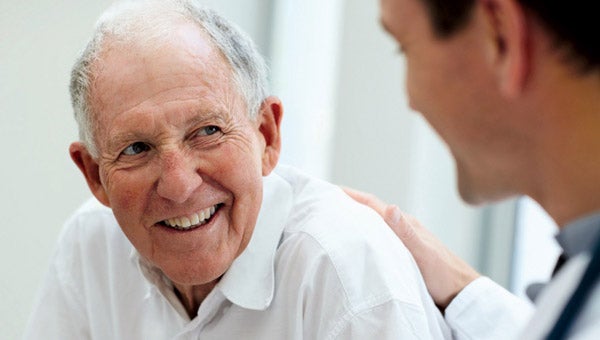Body language
Published 9:12 pm Tuesday, July 5, 2011
Listen to your body and talk to your doctor
Paid advertorial by University
Health Systems of Eastern Carolina
Who knows your body better than you? If you detect any changes in your health – for instance, a suspicious mole, sudden weight loss, unexplained fatigue – discuss them with your doctor. Take advantage of health screenings in your community that can often identify illnesses before symptoms arise. The U.S. Department of Health and Human Services offers the following advice:
Breast Cancer. Ask your physician whether a mammogram is right for you based on your age, family history and overall health.
Cervical Cancer. If you’re a woman, have a Pap smear every one to three years if you are 21 to 65 years old and have been sexually active.
Colorectal Cancer. Have a screening test starting at age 50. Start earlier if you have a family history of colorectal cancer.
Depression. Request a screening if, in the last two weeks, you’ve felt sad or hopeless, or if pleasurable activities no longer appeal to you.
Diabetes. Get screened if your blood pressure is higher than 135/80 or if you take blood pressure medicine. Diabetes can cause problems with your heart, brain, eyes and other body parts.
High Blood Pressure. Have yours checked every two years. Blood pressure of 140/90 is considered high and can lead to stroke, heart attack, kidney disease, vision problems — even heart failure.
High cholesterol. If you are 35 or older, get your cholesterol checked. Or, begin having it checked at age 20 if you use tobacco, are obese, have diabetes or high blood pressure, have a history of heart disease or blocked arteries or if you have a family history of danger signs — a man in your family having a heart attack before 50 or a woman before age 60.
Osteoporosis (bone thinning). Have a screening test at age 65.
Overweight and obesity. Persons with a BMI of 30 or higher may be obese. Talk to your doctor or nurse about intensive counseling to help reduce your weight.
Your doctor can advise you on these and other health issues. If you don’t have one, you can get help finding a doctor by calling University Health System’s Consumer Call Center. Doctors affiliated with UHS have multiple medical practices in communities throughout the region. The call center can provide information on physicians to help you make a choice that is right for you, including location, education and areas of special clinical interest. They can even connect you directly to the office so you can schedule an appointment.
To get connected with a physician in your area, please call toll-free 1-800-472-8500, or visit us on the web at www.uhseast.com and click on “find a provider.”



